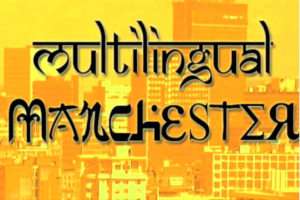Urban languages archive is world's largest

A University of Manchester archive set up in 2010 to document, protect and support the languages spoken in one of Europe's most diverse cities, is now the world's largest. The web based Multilingual Manchester, which documents the city's diverse linguistic tradition of over 100 languages, will celebrate its success at an event tomorrow (18 October).
The archive at mlm.humanities.manchester.ac.uk/, authored by linguistics students and available for free, now contains over 100 reports on multilingualism and language minorities in Manchester.
The public are also invited to send in material to the website which contains information on languages including Yoruba, Urdu, Yiddish, Kurdish, Romani, Aramaic, Armenian, French, Punjabi, Bengali, Somali and Polish.
Project co-organiser Professor Yaron Matras, based at the newly launched School of Arts, Languages and Cultures, said: "Manchester is already a model of tolerance and cultural diversity and the University is taking an active part in understanding and tackling the challenges that diversity entails.
"Our reports show how Manchester health services, as well as businesses, are increasingly embracing multilingualism to reach their target audiences of clients and customers, and that language skills are therefore becoming an important asset in the service and retail sectors.
"Around two thirds of Mancunian schoolchildren are bilingual - a huge figure which indicates just how precious its linguistic culture is.
"So we're proud that MLM allows researchers and students to make a difference to their local community by providing local services with information on the needs of the different language communities.
"It's also about helping communities understand one another by raising awareness of languages and cultures.
"There are examples of linguistic archives elsewhere- but Multilingual Manchester is now far bigger than anything else - so we're very proud of that."
Professor Matras' team has been working closely with local authorities and schools to advise on community cohesion.
They have worked with the NHS on prioritising languages for information and advice on access to health care, for various city council agencies and schools.
But the project has also offered students the opportunity to experience cultural diversity and to engage in active research within Manchester's communities.
Professor Matras added: "So little data on this area is available – but we do known that in Manchester's schools, 65 different languages are spoken.
"Some 30% of secondary school pupils in Manchester – that's 7,000 people- have a language other than English as their first tongue.
"So if you account for bilingual households, a figure as high as 60% of all Manchester pupils may be multilingual."
More information: An interactive exhibition piloted at Manchester Museum last year is available here: mlm.humanities.manchester.ac.uk/
Provided by University of Manchester

















